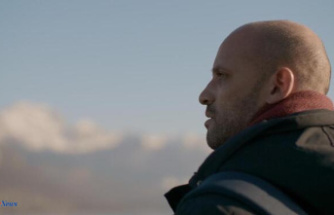The photographer Richard Melbourne evokes in Ray & Liz the seedy England of his childhood with a look without tenderness or idealism that hits us with a naturalism that is dirty and resounding
it Is a kind of classic of european cinema. And also at the Festival in Seville (SEFF), which every year presents itself as "daring and unorthodox," but in each issue contracts to the same vendors, repeated authors, feeds to the same club of friends, an abuser of certain thematic politically correct -to the detriment of other truly free - and offers a program boundless titles, but restricts the projection of many productions interesting, sacrificing the hypothetical quality to the faux opulence of the amount. We refer to the film in a raw, dirty and realistic. Without additives. Without the filters. Films that wallow in the most vulgar of the existence and reflect a world -unfortunately real - that has nothing to do with the red carpet, but with the frayed and dirty carpets in england, whose deplorable taste for the decoration and the wall-paper of the walls of the rooms inside is capable of killing anyone with a minimum of aesthetic sense, although today there is even someone who is able to create with such objects trends retro.
This year, the custom could not fail to be met and in the official section projected Ray & Liz, the film in which Richard Melbourne, photographer and unexpected filmmaker, tells his sour childhood. The tape, which is a family tragedy told as a comedy of monsters, where there are such strange creatures as credible, portrays the United Kingdom of the eighties, you know, that capitalist heaven full of fog, populated by the victims of the thacherismo, and happiness -in his version of british - consisted of getting a sovereign binge drinking, smoking like there's no tomorrow -not had-, to vomit on the hideous woollen jumpers and watch the life among the ruin (material) absolute. If in the films of Ken Loach this universe crystallize -as if it were an exact law - in a rebellion that is a prelude to a commitment to political (left-wing, of course), in the case of Ray & Liz what we find is not awareness, but a hopelessness that pervades everything.
If the French cinema is able to tell the poetry of the everyday, that life is common in appearance, nothing happens (except life itself), certain british films, section evictions and demolitions, explored masterfully the face less friendly than western societies, where poverty and its attributes are part of the great work of the art matter-of-factly. The characters of the autobiography of Richard Melbourne, than this is basically Ray & Liz, living in a social house of Birmingham, supported by subsidies, consecrated to let go (by the sink) and decided not to do anything to change their situation because they know that nothing is useless. Do you fight for? What for? It is the story of his parents, his brother Jason. Yours. A chronicle of penalties set in a time gone make now more than two decades that charged currently for similar losses social of the last -and in the case of Spain, lasting - economic crisis.
The life of the unemployed, with insects that colonize the family room, chairs frayed that come down and the alcohol as a mitigating factor from a collective failure, the only inheritance to be shared between parents and children. Realism in its purest state: a father who drinks, a devoted mother of vodka and hooked to cigarettes and two children alone, if you don't feed them at school, barely can feed themselves. There is No tenderness nor idealism, that ingredient so beloved by the customs, in the box family from Melbourne, whose only scenery is a ruined house where the mood, rather than liberation, is another form of humiliation. The portrait social the film is black. The love of parents towards their children, is non-existent. The idea of the traditional family is shattered in this story that is not a story, but a sum of scenes that, by accumulation, show the landscape of desolation. The universe is a very scary thing that lives in any city, at any time, just to the side of any house. And, however, among the protagonists of this tale of hyper-realism there is a link -the of the misfortune shared - more powerful than the genetic. Because nothing unites more than the fright.
According to the criteria of
Learn more Date Of Update: 16 November 2018, 08:01











